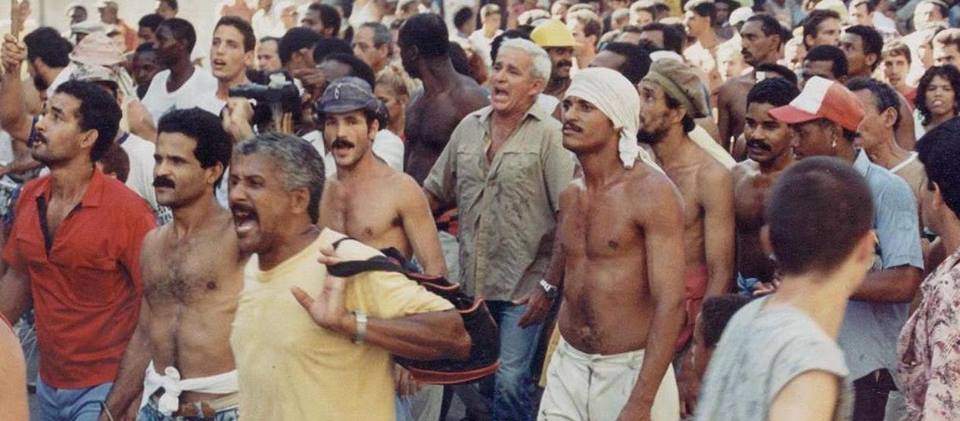14YMEDIO, Havana, Yoani Sanchez, 22 August 2014 – The phone rings and it’s a friend who works for a government publication. She’s content because she’s published an article that attacks bureaucracy and corruption. The young woman finished college two years ago and has been working in a digital medium that deals with cultural and social issues. She has the illusions of a recent graduate, and she believes she can do objective journalism, close to reality, and help to improve her country.
My friend has had some luck, because she exercises this profession at a time when the national media is trying to more closely reflect the problems of our society. The official journalist exists in a timid Glasnost, 25 years after a similar process in the Soviet Union. If that attempt at “information transparency” was promoted through Perestroika, on the Island it’s been pushed by the Sixth Communist Party Congress Guidelines. In this way, a more objective and less triumphalist press is pushed—from above. The same power that helped create laudatory newspapers, now urges a shift from applause to criticism. But it’s not easy.
The original sin of the official press is not the press, but propaganda. It emerged to sustain the ideological political-economic model and it can’t shed that genesis. The first steps in the creation of the current national media always includes an act of faith in the Revolution, It is also funded entirely by the Government, which further affects its editorial line. It’s worth noting that the official media is not profitable, that is, it doesn’t generate income or even support its print runs or transmissions. Hence, it operates with subsidies taken from the national coffers. All Cubans sustain the newspapers Granma and Juventude Rebelde (Rebel Youth), the Cubavision channel or Radio Reloj (Clock Radio)… whether we like it or not. continue reading
Moreover, the official press is structured so that nothing can escape to the front page of the newspapers or to the TV and radio microphones that hasn’t been previously inspected. They are characterized by their strict elements of supervision.
Architecture of Control
My friend is facing at least four strong mechanisms of censorship she must deal with every day and which she rarely manages to successfully evade. Cuba has come to have one of the most sophisticated methods of monitoring information anywhere in the world. At the highest point of this architecture of control is the Department of Revolutionary Orientation (DOR), an entity belonging to the Central Committee of the Cuban Communist Party. A group of people—designated for their ideological loyalty—analyze all the journalistic content published in the country, and, from these observations, follows certain topics and authors.
The DOR is also responsible for drawing up the so-called “thematic plan” in which it programs the issues the Cuban press will address in a specified time period, and with what intensity it will do so. Right now, for example, just looking at national television we can see that there is a marked intention to speak optimistically about the Port of Mariel, foreign tourism and agricultural production.
The same power that helped create laudatory newspapers, now urges a shift from applause to criticism.
Not only political issues or international relations pass through that filter. Control is also exerted over the music broadcast on radio stations and the music videos, soap operas, and science programs aired on television. The so-called black lists of singers or banned authors in the national media come entirely from the DOR. This so painful and prolonged phenomenon has been losing ground in recent years, more from social pressures than because of a sincere process of self-criticism among the censors.
The heads of the press organs must meet regularly with “the comrades from the DOR” to ensure that the plan of topics decided from above is carried out. But the influence of this entity does not end there. The directors of the newspapers and the heads of specific pages or specialized pages will only be appointed with the consent of this department, which in many cases is the person who placed them in their positions. This extends to the national and provincial organs, the municipal radio stations and the specialized magazines. The Journalism School at the University of Havana also receives direct attention from the Department of Revolutionary Orientation, which controls its curriculum and involves itself in the process of choosing new students. Nothing moves in the Cuban press without this watchtower of censorship knowing about it.
Promote the positive results
Another control mechanism that grips the official press is that imposed by the institutions and ministries. From the departments overseeing these entities, journalists are encouraged to promote the sectors they cover. Only with the authorization of these State organs, can the reporters access offices, files, review meetings, press conferences, the interior of a factory, or a cultural center or school.
Nothing moves in the Cuban press without this watchtower of censorship knowing about it.
This second control filter placed on institutions gives birth to a kind of journalism that has done a great deal of harm to Cuban society. One full of triumphalism, inflated figures, and “everything is perfect.” This pseudo-information has been so abused that popular humor is full of jokes about it. Like the one about when the news comes on and people put a bag under the TV to collect the food that appears in the reports, but that never show up in reality. This practice fosters opportunism, as well as making reporters think, “I’d better not get in trouble, if it’s good for me here.” There are sectors that are very attractive to cover, like tourism, because they include gifts, invitations, eating in hotel restaurants, and even all-expense-paid weekends at resorts.
Surveillance in the hallways
The third control mechanism makes people afraid to even say its name. The role of the Ministry of the Interior in every press organ. Every newspaper, radio station, TV channel or provincial newspaper has one or several people who are responsible for “seeing to” the security of the center. This department is responsible for investigating the extra-professional activities of every reporter, photographer or graphic designer. To spy on what they say in the hallways, supervise the questions they ask in interviews—particularly if it involves a foreigner—and whether they have contacts in the opposition or among independent journalists.
The more sophisticated control mechanism
If my friend makes it past those three control mechanism without deleting a line or one of her works being prohibited, she will still face the most efficient and sophisticated of all. It’s euphemistically called self-censorship and is nothing more than the result of pressure exercised over the communicator by the instruments of control and punishment.
So she remains silent about certain topics, to “not give arms to the enemy,” or because they’ve made her believe that “only they can offer constructive criticism.”
Self-censorship acts as a psychological barrier and is expressed in the omissions that each journalist makes to stay on safe ground and not get too close to the allowed limit. However, the victim of self-censorship doesn’t always see it like this, rather she justifies her attitude. For a communicator from the official press who believes in the system, it’s an act of political militancy, a question of faith. So she remains silent about certain topics, to “not give arms to the enemy,” or because they’ve made her believe that “only they can offer constructive criticism.” Journalists come to think that if they question the immigration policy, the single-party system, and the political intolerance in the country, they will be doing more harm than good.
The professional who accepts and successfully passes through these four censorship and control filters and can call themselves an editor, a composer of sentences, a typist, a propagandist… but never a journalist.
Maybe one day my young friend will call me, not to tell me that she has managed to sneak a text into an official media, but to tell me that she’s decided to become an independent journalist. She will take on new challenges and problems, but be much freer.


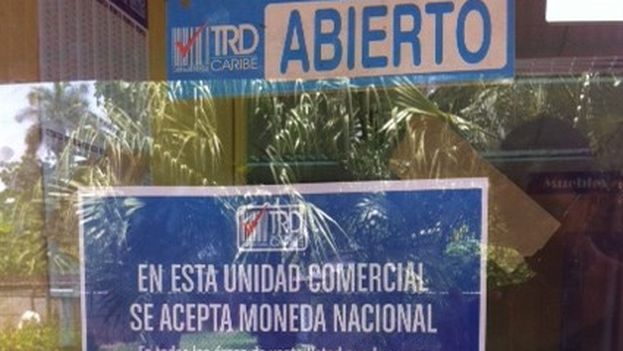

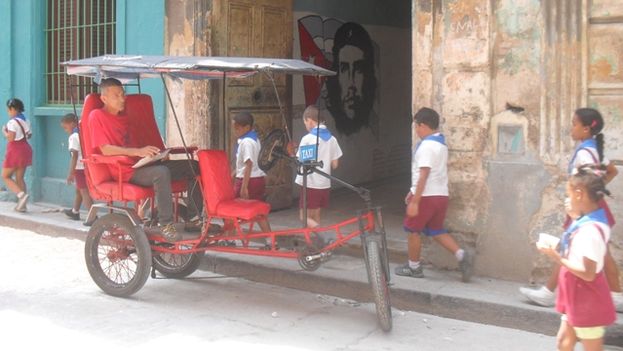


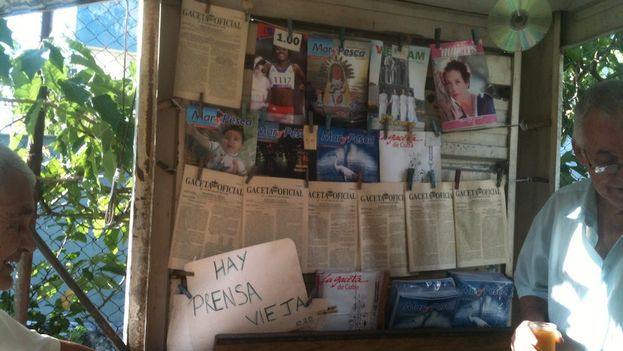



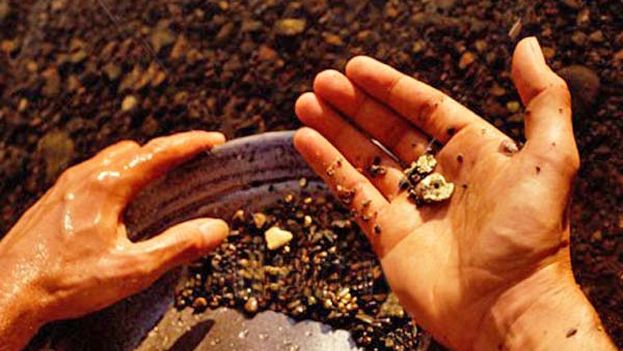
![Big Brother stands as judge of journalistic "objectivity." [The text says that CPI can temporarily or permanently cancel press credentials for “lack of journalistic ethics… or objectivity.’”]](http://generacionyen.files.wordpress.com/2014/08/periodismo-censura_cymima20140812_0002_16.png?w=584)

